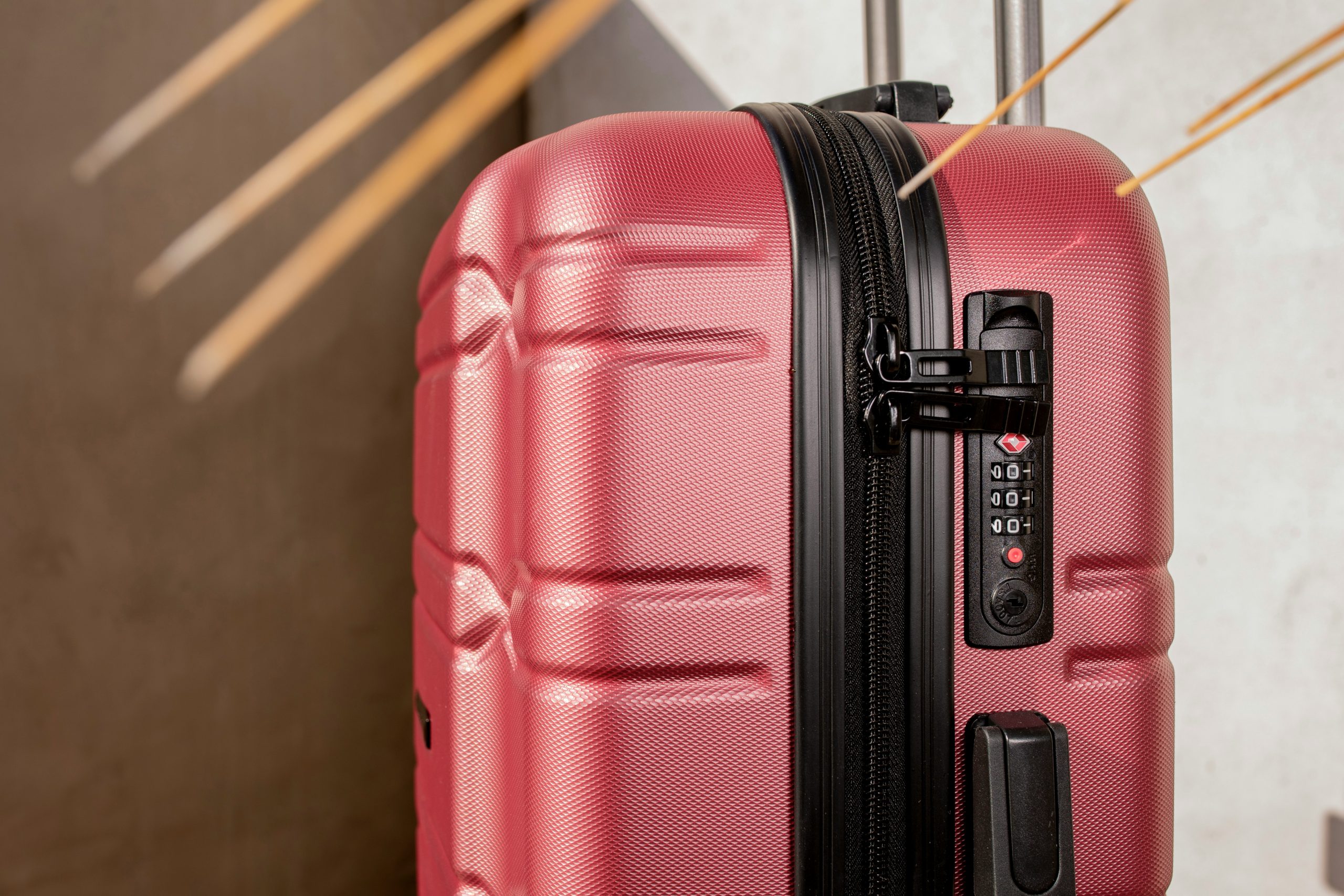Moving overseas is not just a change of address; it’s a leap into a world of new experiences and unknowns. As a UK mama dreaming of an adventurous life abroad while ensuring your family’s smooth transition, the thought can be both thrilling and overwhelming. Planning every detail, from understanding visa requirements to researching schooling options for your kids, becomes vital.
These international movers advise that gathering trustworthy information, connecting with other expat mums who have made the journey, and meticulously navigating the logistics, you can pave the way for a successful relocation. This guide offers insights such as managing the cost of living in different countries, understanding local job markets, and finding community support networks crucial for settling down. With thorough preparation, you can turn this challenging task into a rewarding adventure for you and your children.
Moving overseas as a UK mother with a child involves careful consideration of legal requirements, such as obtaining consent from the other parent or obtaining a court order if there is opposition. It’s important to seek legal advice early in the process to understand the implications and explore options for reaching an agreement outside of court, keeping the child’s best interests at the forefront.
Researching Overseas Opportunities
One of the most critical steps when considering a move abroad is identifying the right destination. The factors to consider go beyond just finding a place with beautiful scenery—important metrics such as the cost of living, quality of life, climate, and job market play a major role in this decision. Websites like Numbeo and Expatistan can be invaluable in providing detailed data on living expenses in different countries, helping you compare and contrast various aspects of these places before making your final choice. Moreover, forums like Expat.com offer firsthand experiences from expats already living in your potential destination, giving you valuable insights that guide your decision-making process.
Understanding the local job market is also essential when researching overseas opportunities. What are the employment prospects for someone with your skill set? Which sectors are thriving and which ones are more challenging to break into? Websites like Indeed and Glassdoor can give you an idea of what jobs are available in your target country. Additionally, it’s crucial to investigate whether your qualifications will be recognized in the new country and to explore local employment laws. This research gives you a realistic understanding of what awaits you professionally, helping you make an informed decision about your move.
For families with school-going children, educational opportunities are a top priority. Researching the educational system and schooling options in your chosen destination is imperative. Look into international schools, which often offer curriculum similar to those in your home country, providing a seamless transition for relocating children. However, if you are planning for a long-term stay abroad, exploring local schools and their offering might also be beneficial.
By gathering all this information, you’re better equipped to make informed decisions about potential destinations that suit your lifestyle and career aspirations, ensuring a smoother transition and successful relocation experience.
Armed with comprehensive knowledge about potential relocation destinations, the next crucial step involves navigating the intricate visa process—a pivotal aspect in transitioning abroad seamlessly.

Navigating the Visa Process
Understanding visa requirements can be complex and varies greatly between countries. Each country has its own set of rules and regulations regarding visas and immigration. It is essential to research the official immigration website of the country you are considering and understand the different types of visas available, such as work visas, family visas, or permanent residency options.
For example, some countries may offer special visas for entrepreneurs or investors, while others might have specific visa categories for skilled workers. Knowing what types of visas are available will help you determine which one fits your situation best.
Once you have a clear understanding of the visa options, it’s essential to know about the application procedures. This includes gathering all necessary documents like birth certificates, marriage certificates, job offers, and proof of finances. In some cases, these documents may need to be translated and notarized, so it’s crucial to plan well in advance for these processes.
Countries often require specific documents to prove your eligibility for a visa, such as educational certificates or letters of recommendation. Understanding and fulfilling these requirements can be time-consuming, so it’s crucial to start preparing these documents early on in your relocation journey.
For instance, if you are applying for a work visa, you may need a detailed job offer from a company in your destination country. If it’s a family visa, you may be required to provide proof of relationship with family members residing in the country. Additionally, some countries may require health and character checks as part of the visa application process. These checks often involve medical examinations and police clearances to ensure that applicants meet specific health and character standards.
Timelines and Costs
Another important aspect of navigating the visa process is understanding the timelines and costs involved. Some visas may have lengthy processing times, stretching from several months to over a year. It’s crucial to research this information well in advance so that you can plan your relocation timeline accordingly.
Moreover, budgeting for any application fees or visa consultancy services is essential. Some countries may have substantial application fees for visas, particularly for certain categories such as investor or entrepreneur visas. Additionally, if you decide to seek professional assistance through visa consultancy services, these costs should also be factored into your overall budget.
For example, some entrepreneurial visas may have substantial investment requirements and associated government fees. It’s important to consider these financial aspects as part of your relocation planning.
Understanding visa requirements, meticulous documentation collection, accounting for processing times and costs are pivotal in ensuring a smooth transition during your overseas relocation endeavor. Visa processes can be intricate and time-consuming, but with thorough preparation and organization, you can navigate them effectively.
As you navigate the labyrinth of paperwork and timelines in pursuit of your international adventure, next up we’ll unravel another critical aspect – Financial Planning for Relocation.

Financial Planning for Relocation
Moving to a new country is thrilling and life-changing, but it’s essential to have your finances in order to ensure a smooth transition. Financial planning for relocation involves various considerations, including creating a budget for moving expenses, managing international banking, and understanding tax implications.
Budgeting for the Move
Moving isn’t just about packing up your belongings; it also involves substantial financial planning. It’s crucial to create a detailed budget that covers all aspects of the relocation process, such as shipping, flights, accommodation, and visa fees. Using online calculators can help you estimate moving costs more accurately, allowing you to allocate funds appropriately.
Setting aside an emergency fund is equally important, providing a financial safety net in case unexpected expenses arise during or after the move. By having a well-planned budget and emergency fund, you can navigate the financial aspects of relocation with confidence.
Opening an International Bank Account
Before making the move, consider opening an international bank account in the destination country. This proactive step can significantly simplify managing your finances once you arrive. International bank accounts allow for seamless currency conversion and international transactions, eliminating the hassle and additional expenses of relying solely on your UK bank account abroad.
Caution: Research thoroughly and compare options offered by different banks to find the most suitable international banking solution for your needs. Online platforms such as Wise or Revolut offer user-friendly international banking services worth considering.
Tax Implications
Understanding tax obligations in both the UK and your new country is crucial to maintaining financial compliance and optimizing tax efficiency. It’s advisable to consult a tax advisor who specializes in international taxation to navigate double taxation treaties and ensure compliance with taxation requirements in both jurisdictions.
For instance, some countries may have different tax structures or double taxation agreements with the UK that affect how your income is taxed when living abroad. Being aware of these details can prevent financial surprises and ensure that you fulfill all tax obligations without unnecessary complications.
Taking proactive steps in financial planning will not only facilitate a well-organized relocation but also provide peace of mind as you embark on this exciting journey.

Packing and Preparing to Leave
Packing up your life to move overseas can feel overwhelming at first, but with careful planning and organization, it can become less daunting. Here are some essential steps to consider as you prepare for your international relocation.
Creating a Packing List
When planning a move abroad, one of the first tasks is creating a detailed packing list. Start by considering the essentials – important documents, clothing suitable for your destination’s weather, and personal items that hold sentimental value. It’s vital to think about the cultural differences you may encounter in your new country and pack accordingly. For instance, if you’re relocating to a tropical climate from the UK, heavy winter coats and boots won’t be as necessary.
Hiring a Moving Company
Research is key when it comes to finding a reputable moving company. Look for platforms like Trustpilot or Google Reviews to find trusted movers who specialize in international relocations. Ask for quotes from several companies and inquire about insurance options to safeguard your belongings during transit.
Canceling or Transferring Services
Notifying utility companies, banks, and any subscription services of your move is crucial. Make sure to arrange for the transfer of medical records to a healthcare provider in your new country and inform your children’s schools about their upcoming withdrawal. Additionally, contact relevant governmental bodies to update them on your relocation, as this will ensure a smooth transition in terms of documentation and legal requirements.
As you tackle the practical aspects of packing and preparing for your move abroad, remember that careful attention to detail at this stage will help streamline the transition process as you embark on this new adventure.
Settling into a New Country
Moving to a new country can feel overwhelming at first, but with careful planning and the right approach, you can make the transition smoother for yourself and your family. From finding accommodation to registering with local authorities and enrolling your children in school, there’s a lot to consider when settling into a new country.
Finding Accommodation
One of the first things you need to do upon arrival in a new country is secure accommodation. Your initial choice may be temporary while you get to know the area and decide where you want to live permanently. Consider using online rental platforms like Airbnb or Rightmove International to find short-term accommodation that suits your needs. Take your time to explore different neighborhoods before making a decision about a more permanent residence. It’s essential to consider factors such as proximity to schools, public transportation, and amenities when choosing your long-term home.
When selecting temporary accommodation, it’s crucial to consider its accessibility to essential services such as schools and medical facilities. Additionally, proximity to public transportation and grocery stores can greatly contribute to a smooth transition period.
Registering with Local Authorities
Upon settling into your temporary accommodation, one of the key tasks is completing necessary formalities with the local authorities. This can include registering with local healthcare providers, obtaining a local driving license if needed, and setting up utilities in your new place. It’s advisable to check the official government website for newcomers, as they often provide a detailed checklist of the steps you need to take.
Registering with local healthcare providers is particularly crucial. Familiarize yourself with the healthcare system of the new country and ensure that you have access to medical care when needed. Obtaining a local driving license will also help you navigate the area more effectively, giving you independence in getting around.
Enrolling Children in School
If you have children, enrolling them in school is an important step in helping them settle into their new environment. Research different educational options available in the area and ensure that the school you choose meets their academic and extracurricular needs. Completing any required paperwork promptly will help streamline the enrollment process, allowing your children to seamlessly integrate into their new school community.
Remember, settling into a new country takes time and patience. By carefully addressing these key aspects, you can establish a solid foundation for your family’s new life abroad.
As you embark on this international journey with your family, embracing cultural differences becomes an enriching endeavor that shapes your experience in profound ways.

Embracing Cultural Differences
Learning the Language Mastering the local language, whether it’s French in Paris or Mandarin in Shanghai, is a powerful way to bridge cultural divides and create meaningful connections. Embracing a new language can open doors to deeper cultural understanding, allowing for more effective communication and personal engagement with locals.
Being able to speak the local language enhances your ability to navigate daily life, from ordering food at a restaurant to having friendly conversations with neighbors. It also demonstrates respect for the culture of your adopted country, often earning you respect and appreciation from locals.
Many expats find that using language apps like Duolingo or attending local language classes not only facilitates their integration but also adds an exciting layer of enrichment to their overseas experience.
Understanding Social Norms Familiarizing yourself with cultural norms and etiquette is crucial for smooth interactions with locals and to avoid unintentional offense. Gaining insights into local social norms allows you to navigate social situations with confidence and grace.
In some cultures, direct eye contact is a sign of respect and attentiveness, while in others it may be considered rude or confrontational. Being aware of such nuances allows you to adapt your behavior accordingly and fosters positive interactions in your new community.
Conducting thorough research on cultural norms will equip you with the knowledge needed to navigate various social scenarios, from greetings and gestures to dining etiquette and gift-giving customs.
Joining Local Communities Engaging with local communities and forming connections with both locals and fellow expats can play a pivotal role in making your relocation a rewarding experience. Actively participating in community events allows you to forge new friendships, gain support, and deepen your understanding of the local culture.
Joining expat groups or attending community activities organized through platforms like Meetup or Internations provides valuable opportunities to meet like-minded individuals, share experiences, and discover shared interests.
By integrating yourself within local communities, you’ll gain firsthand exposure to local customs, traditions, and lifestyle habits—a priceless opportunity for personal growth and cultural enrichment. Such connections can ease the initial challenges of settling into a foreign land and contribute to building a strong support network in your new home.
As you navigate the intricate landscape of overseas relocation, staying connected with family back home becomes an essential lifeline. Let’s explore how you can maintain strong ties while embracing the adventures of your new life abroad.

Staying Connected with Family Back Home
Moving abroad can be an amazing adventure, but it often comes with the challenge of being far away from loved ones. Keeping in touch and maintaining strong connections with family and friends back home is crucial for emotional well-being and nurturing relationships. Let’s explore some practical tips to help you maintain those precious connections despite the miles between you.
Communication Tools
Staying connected in today’s digital age has been made remarkably easier with a plethora of communication tools at our fingertips. Apps such as Skype, WhatsApp, Zoom, and many others offer free or affordable video calling and messaging services that bridge the gap between continents. Regular video calls, texts, and photo sharing can go a long way in bringing a sense of closeness, even when separated by distance.
The visual connection provided by video calls can make conversations more meaningful by allowing both you and your family to see each other’s expressions and reactions. This can help reduce feelings of isolation and keep the bond alive.
Planning Visits
While virtual connections are wonderful, nothing quite beats physical presence. Scheduling regular visits back to the UK allows for quality time with loved ones. When planning these visits, consider booking flights during off-peak seasons to save on travel expenses. By carefully planning your trips, you can enjoy moments of togetherness without straining your budget.
These trips not only allow you to maintain relationships but also provide an opportunity for your family members to experience your new life firsthand. Showing them around your new city can create shared memories that strengthen your bond despite the geographical distance.
Sharing Experiences
In this digital age, creating a shared platform to document your adventures abroad can be a heartwarming way to keep your loved ones involved in your life across the miles. Whether it’s through a blog, a YouTube channel, or a shared photo album on social media, sharing your experiences can help your family feel connected to your new life.
This not only enables your loved ones to stay updated about your life but also allows them to be part of the journey. Sharing snippets of local culture, cuisine, and everyday life can pique their interest and make them feel like they are experiencing this incredible journey alongside you.
By using these communication tools effectively, making regular visits back home, and actively sharing your overseas experiences, you can continue to nurture meaningful relationships with your family and friends despite the physical distance.
Maintaining deep connections with loved ones while living abroad requires effort and commitment. By leveraging modern communication tools and planning meaningful visits, one can bridge the gap between continents and uphold cherished relationships.
What resources are available to help UK mamas plan and execute an international move?
UK mamas planning an international move have a plethora of resources at their disposal. Online platforms like Expat.com and InterNations provide valuable information, forums, and networking opportunities for expats. Government resources such as the Foreign, Commonwealth & Development Office offer advice on visas, healthcare, and general country-specific information. Additionally, relocation companies like Anglo Pacific and Pickfords offer professional assistance in every aspect of the move. According to a survey conducted by British Mums Dubai, 87% of UK mamas found online expat platforms helpful during their relocation process.
What are the immigration requirements and processes for a UK mama moving overseas?
The immigration requirements and processes for a UK mama moving overseas vary depending on the destination country. In general, it is essential to research and comply with the specific visa regulations and documentation required by the target country’s immigration authorities. For example, in 2024, popular countries for UK expatriates like Australia, New Zealand, and Canada often require skilled migrants to meet certain criteria based on qualifications, work experience, or sponsorship. It is advisable to consult official government websites and seek professional assistance to ensure a smooth relocation process.
Are there any specific challenges or considerations for a UK mama moving with children?
Yes, there are specific challenges and considerations for a UK mama moving with children. Firstly, adapting to a new cultural environment and education system can be challenging for both the mother and the children. Additionally, language barriers may pose a difficulty for them to interact and make friends in their new surroundings. Furthermore, it is essential to consider the impact of the move on the children’s emotional well-being as they leave behind familiar surroundings, friends, and extended family. According to a survey conducted by Expat Explorer, 62% of expat parents express concerns about their children’s integration into the new community when relocating overseas.
How does relocating overseas as a UK mama affect healthcare, education, and other essential services?
Relocating overseas as a UK mama can have a significant impact on healthcare, education, and other essential services. Healthcare coverage may vary depending on the country of relocation, with potential differences in quality of care, access to specialists, and costs. It is important to research and understand the healthcare system of the new country to ensure adequate coverage. Regarding education, finding suitable schools that accommodate the needs of UK mamas’ children can be challenging. Understanding the education system, availability of international or English-speaking schools, and transferability of qualifications is crucial in ensuring a smooth transition for children. Exploring essential services such as banking, transportation, and utilities is also vital for successful relocation. Statistics related to these topics can differ by country and should be thoroughly examined before making any decisions.
What are the best countries for a UK mama to consider moving to?
The best countries for a UK mama to consider moving to would be Canada, Australia, and New Zealand. These countries offer a high standard of living, excellent healthcare systems, quality education, and a safe environment for families. Additionally, they have thriving expat communities and strong ties to the UK. According to the Expat Insider Survey 2020, these countries rank highly in categories such as quality of life and ease of settling in for expatriates.









No Comments